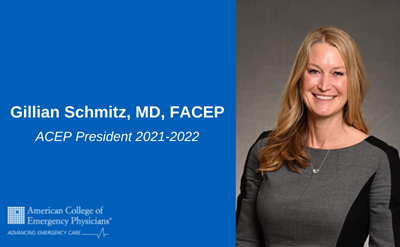Washington, D.C.—The American College of Emergency Physicians (ACEP) strongly applauds the Centers for Medicare and Medicaid Services (CMS) introduction of the Age-Friendly Hospital Measure as part of the fiscal year (FY) 2025 Inpatient Prospective Payment System (IPPS) rule.
This measure, developed by ACEP in partnership with the American College of Surgeons and the Institute for Healthcare Improvement, clarifies goals for those who work with older patients and incorporates important aspects of the ACEP Geriatric Emergency Department Accreditation (GEDA) framework into care delivery.
“The Age-Friendly Hospital Measure reshapes the way we care for older patients,” said Aisha Terry, MD, MPH, FACEP, president of ACEP. “ACEP is proud to collaborate with health care leaders at the highest levels to drive meaningful change that helps physicians, care teams and patients.”
A hospital’s score on the Age-Friendly Hospital measure is based on attestations across five domains. ACEP encouraged CMS to include attestations to reduce boarding in the emergency department and screen for risk factors related to social determinants of health, among others.
The measure calls for hospitals to have protocols in place to move older patients out of the emergency department within eight hours of arrival or three hours of the decision to admit.
ACEP is pleased that CMS recognizes the need for hospitals to help address prolonged, systemic delays in the care of patients admitted from the emergency department. Extensive data reinforces the association between boarding and health risks, with older patients who board overnight experiencing higher mortality rates than other patients.
“Emergency physicians are at the center of solutions to many of the most complex problems in health care,” said Dr. Terry. “This measure applies ACEP GEDA program principles to improve care delivery system-wide, and save lives.”
The ACEP GEDA program is informed by evidence-based best practices and recently accredited its 500th emergency department. The GEDA program is made possible through generous support from the John A. Hartford Foundation and West Health. A growing body of research links facilities in the ACEP GEDA program to lower costs, improved quality, and optimized patient experience.
“This measure is directly informed by emergency physicians’ experience and shows health systems the way to build a better and safer environment for older patients,” said Kevin Biese, MD, MAT, director of the division of geriatric emergency medicine at the University of North Carolina School of Medicine, and chair of the ACEP GEDA Board of Governors. “Encouraging facilities to adopt ACEP-supported best practices can make a difference in the lives of millions of vulnerable patients.”
 American College of Emergency Physicians
American College of Emergency Physicians







